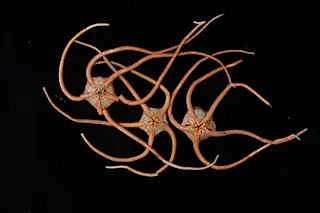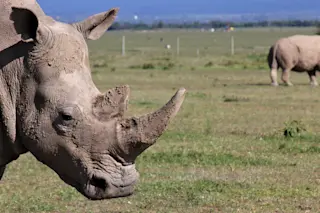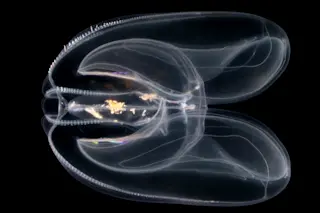Have humans hit an evolutionary glass ceiling? According to Morris Goodman, a molecular evolutionist at Wayne State University in Detroit, we may have attained better brain power by accepting slower genetic change— a trade-off that leaves less room for mutations, both beneficial and deleterious.
Goodman and his colleagues analyzed snippets of noncoding DNA— parts of the genetic code that are not influenced by natural selection— in more than three dozen primate species. The researchers found a dramatic decrease in mutation rates along the evolutionary line leading to humans. The speed of mutation is systematically lower in species with more brainpower. Primates with the biggest brains and longest life spans, including chimps and humans, exhibited the slowest rates of all. Slowing the rate of change in the DNA, he says, means "more years elapse before the accumulation of mutations causes a cascade of cell deaths." In other words, putting the brakes ...














